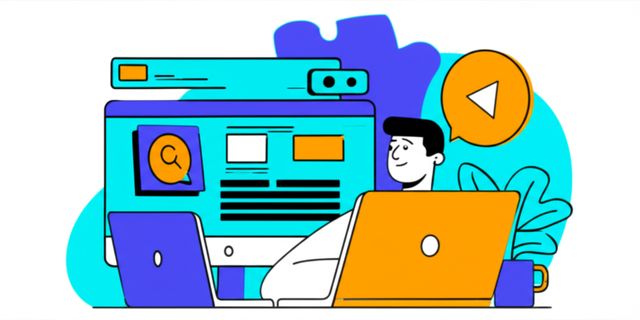E-commerce Developer
The E-commerce Developer plays a critical role in the rapidly growing world of online commerce, as they are responsible for designing, developing, and maintaining e-commerce platforms and websites. These platforms and websites enable businesses to sell their products and services online, and E-commerce Developers ensure that these platforms are user-friendly, efficient, and secure. With the increasing popularity of online shopping, the demand for skilled E-commerce Developers is expected to continue to rise.
Essential Skills and Qualifications
To succeed as an E-commerce Developer, individuals need a strong foundation in computer science and web development. This includes proficiency in programming languages such as HTML, CSS, JavaScript, and PHP, as well as a deep understanding of web development frameworks and content management systems like WordPress and Shopify. Additionally, E-commerce Developers must be familiar with database management, payment gateways, and security protocols to ensure the smooth functioning and protection of online stores.
Career Path
Individuals interested in pursuing a career as an E-commerce Developer have several options available to them. Self-study is a viable path, with numerous online courses and resources available to help individuals develop the necessary skills. Additionally, part-time or full-time studies in computer science, web development, or related fields can provide a structured learning environment and the opportunity to gain hands-on experience. For those with an existing background in software development, transitioning to E-commerce Development is a natural progression that can be facilitated by self-study or additional coursework.
Day-to-Day Responsibilities
The day-to-day responsibilities of an E-commerce Developer can vary depending on the size and nature of the organization they work for. However, some common tasks include:
- Designing and developing e-commerce websites and platforms
- Integrating payment gateways and security measures
- Optimizing websites for search engines (SEO)
- Monitoring website performance and resolving any issues
- Collaborating with marketing and sales teams to improve website conversions
Challenges
E-commerce Developers face several unique challenges in their work. One significant challenge is the need to stay up-to-date with the latest technologies and trends in e-commerce. Additionally, E-commerce Developers must be able to work independently and as part of a team, and they must be able to meet deadlines and work under pressure. Troubleshooting and resolving technical issues can also be challenging, especially when dealing with high-traffic websites.
Projects
E-commerce Developers may work on a variety of projects throughout their careers. These projects can range from small-scale website updates to large-scale e-commerce platform implementations. Some common projects include:
- Developing new e-commerce websites
- Redesigning existing e-commerce websites
- Integrating new features into e-commerce websites
- Optimizing e-commerce websites for performance
- Implementing security measures for e-commerce websites
Personal Growth Opportunities
E-commerce Developers have the opportunity for significant personal growth throughout their careers. As they gain experience, they can develop their skills in a variety of areas, including web development, database management, and project management. Additionally, E-commerce Developers can take on leadership roles and become mentors to junior developers. With continued learning and development, E-commerce Developers can advance their careers and increase their earning potential.
Personality Traits and Interests
Successful E-commerce Developers typically possess a combination of technical skills and soft skills. They are creative and have a strong eye for detail, and they are able to think critically and solve problems effectively. Additionally, E-commerce Developers are typically passionate about technology and have a strong desire to learn and grow in their field.
Self-Guided Projects
There are several self-guided projects that students can complete to better prepare themselves for a career as an E-commerce Developer. These projects can help students develop their skills in web development, database management, and project management. Some examples of self-guided projects include:
- Building a personal e-commerce website
- Redesigning an existing e-commerce website
- Developing a new feature for an e-commerce website
- Optimizing an e-commerce website for performance
- Implementing security measures for an e-commerce website
Online Courses
Online courses can be a valuable tool for individuals looking to develop the skills and knowledge needed for a career as an E-commerce Developer. These courses offer a flexible and affordable way to learn at one's own pace. Additionally, online courses provide learners with access to a wide range of resources, including lecture videos, projects, assignments, quizzes, exams, discussions, and interactive labs.
The courses listed above cover a wide range of topics relevant to E-commerce Developers, including web development, database management, and project management. By completing these courses, learners can gain the knowledge and skills necessary to succeed in this field. However, it is important to note that online courses alone are not enough to prepare for a career as an E-commerce Developer. Hands-on experience and a strong understanding of the industry are also essential.


